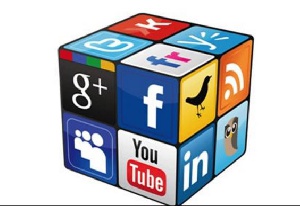 The various social media platforms
The various social media platforms
Ever since IGP John Kudalor suggested the possibility of a social media ban on Election Day and justifiably incurred the wrath of civilised Ghanaians, the subject appears to have refused to leave the public domain.
Even President John Mahama was in opposition to the suggestion as was Dr. Mohammed Ibn Chambas, who was in town for an activity when the subject was in the air, his position obviously mirroring the United Nations’ which flag he bears as a representative of the international organization.
Ironically, though President Mahama is now vacillating on the subject, his position not too clear for comfort. His recent remark that social media constitutes a threat to the forthcoming elections is disturbing. For those who have known the president since he assumed the highest office of Ghana, he has presented himself as a public official who hardly keeps his word.
When his seeming reassuring word that social media would not be shut down earlier on Election Day was released, there were as many who heaved a sigh of relief as were those who doubted the reassurance. Then the vacillation happened a few days ago when he said social media constitutes a threat to the forthcoming election. Those who could not vouch for his word are laughing last and best because by the president’s altered stance on social media, he has left most Ghanaians in doubt about the status of social media on Election Day.
Social media, as Dr. Chambas noted when he spoke about his abhorrence for its ban, is an aspect of freedom of expression. This position therefore, is a suggestion that any attempt at scuttling social media on Election Day or subjecting it to the arbitrariness of government under the flimsy guise of protecting the integrity of the polls, is nothing but a ruse.
We have a democracy to protect. It behooves us therefore as citizens obsessed with ensuring the sanctity of our democracy, to resist such infantile excuses to curb this critical segment of the freedom of expression.
Being a critical segment of democracy, it plays an important role in protecting the sanctity and integrity of the electoral process.
While we do not doubt the possibility of the abuse of social media, we advance the argument nonetheless that same can be said of radio and the other channels of mass communication. The excessiveness of radio in the hands of irresponsible persons was in full flight recently when the Montie 3 rocked the foundation of our democracy: they spewed outrageous remarks on the airwaves. In spite of the anomaly, the thought of a shutdown of the specific radio station was never an option. Indeed, the culprits after judicial process were jailed only to be pardoned by the president.
The status of social media, as in radio and the newspaper, is akin to fire or electricity – both bearing positive and negative attributes.
It stands to reason therefore, that the president should be the last person to start triggering another discussion about whether to shut down social media on Election Day or not.
On Election Day, social media has a critical role to play in ensuring the integrity of the polls.
When Nana Akufo-Addo’s residence was attacked by NDC hoodlums in the face of a momentary but costly apathy by the police, it took the social media to prick the attention of the nation about the nauseating development. But for the social media intervention, the worst could have happened. Let them not dare lest our democracy is reduced to a laughing stock in the comity of civilized nations.